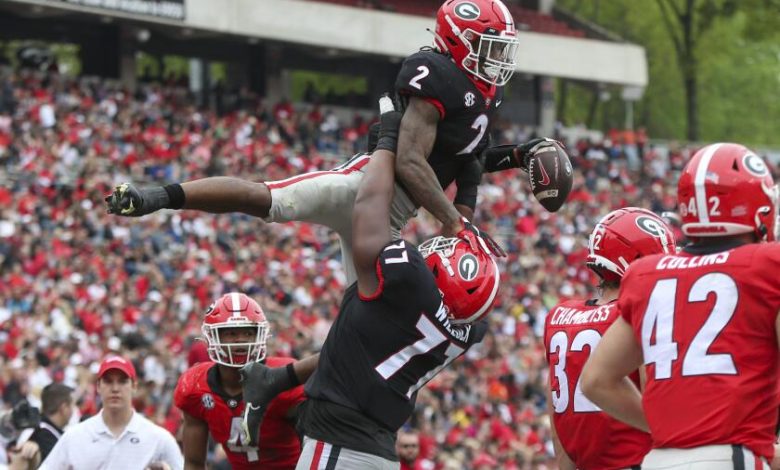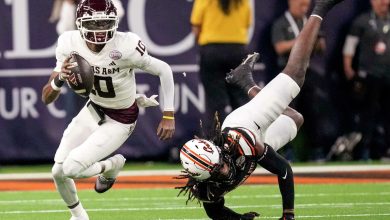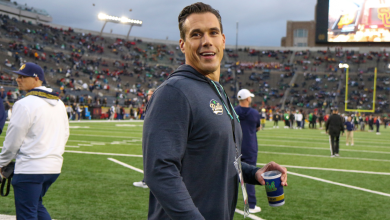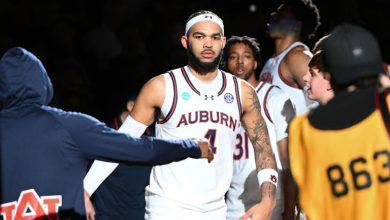Monitoring events involving driving in the Georgia football program since 2023

The University of Georgia Bulldogs have long been a powerhouse in college football, known for their championship-winning programs, impressive athletic achievements, and passionate fan base. However, like many high-profile programs, UGA has found itself in the media spotlight not only because of its on-field performance but also due to off-field controversies. In particular, the issue of driving-related incidents has gained attention in the Georgia football program since 2023, with a series of events that have raised questions about player conduct, safety, and the responsibilities of college athletes.
While Georgia’s football team continues to thrive on the field, including winning national titles and producing NFL talent, the events surrounding driving offenses have cast a shadow on the program. This article explores the key events related to driving that have unfolded since 2023, examining the impact on the players involved, the university, and the broader implications for the Georgia Bulldogs.
1. The Fatal Crash of January 2023: A Tragic Wake-Up Call
The most tragic and impactful driving-related incident in the Georgia football program occurred in the early months of 2023, when a fatal car crash involving several members of the team made national headlines. On January 15, 2023, just hours after the team’s national championship parade, a vehicle containing offensive lineman Devin Willock and recruiting staffer Chandler LeCroy crashed in Athens, Georgia, leading to their deaths. The crash occurred around 2:45 a.m. on Barnett Shoals Road, near the UGA campus.
Willock, who had been part of the offensive line during Georgia’s successful 2022 season, and LeCroy, who was an important member of the team’s recruiting staff, were both killed in the crash. Two other individuals in the car, including football player Warren McClendon, were injured but survived the wreck. According to initial reports, the car was driving at excessive speeds when it lost control and struck multiple trees before finally coming to rest.
This incident became the focal point of national attention, bringing the conversation about the safety and decision-making of college athletes, especially in the context of post-celebration behavior. There were multiple questions raised about the circumstances surrounding the crash, including whether alcohol or speeding contributed to the incident. Additionally, as the investigation unfolded, concerns were raised about whether the players involved had received adequate guidance or support in making responsible decisions.
While the crash was a devastating tragedy, it also prompted the Georgia football program to reevaluate its policies and protocols for managing players’ safety, particularly in post-game and post-celebration environments. The incident led to calls for more stringent guidelines regarding transportation, substance use, and the broader question of how the university can best support the mental and physical health of its athletes.
2. Speeding Tickets and Public Scrutiny: The Case of Jalon Walker
In the months following the January 2023 crash, Georgia football players found themselves under increased scrutiny, particularly with respect to their driving habits. One notable case that garnered attention was that of linebacker Jalon Walker, who received multiple speeding tickets within the span of several months.
Walker, one of the team’s rising stars, was pulled over by Athens-Clarke County police for speeding on multiple occasions in the spring and summer of 2023. In one incident, Walker was clocked driving 15 miles per hour over the posted speed limit on a busy street near the Georgia campus. While these were relatively minor offenses compared to more serious incidents, the high-profile nature of Walker’s position on the team and his association with the Bulldogs led to media coverage.
For many fans and commentators, Walker’s speeding incidents became symbolic of the challenges faced by young athletes who often find themselves in the limelight. Critics questioned whether the coaching staff and university had done enough to educate players on the potential risks and consequences of reckless driving. Georgia football coach Kirby Smart addressed the matter publicly, stating that the program had a strict code of conduct when it came to player behavior off the field, and he reiterated that driving violations, especially speeding, were taken seriously.
In response, the Georgia football program launched a series of workshops and training sessions for players, emphasizing the importance of safe driving, personal responsibility, and the long-term consequences of engaging in dangerous behavior behind the wheel. These efforts aimed to curb the rising concerns over player safety and to help instill a sense of discipline in players both on and off the field.
3. The Role of Coaches and Staff: Proactive Measures to Address Driving Concerns
In light of the events in early 2023, Kirby Smart and his coaching staff began to take a more active role in addressing driving-related concerns within the Georgia football program. While the primary focus for most college football coaches is on performance, training, and game preparation, the aftermath of the January crash underscored the need for a more comprehensive approach to player well-being.
Smart, who is known for his tough and disciplined approach to coaching, initiated a series of seminars for his players on topics such as safe driving, avoiding distractions, and making responsible choices. He brought in guest speakers from law enforcement, including local police officers and accident investigators, who provided insight into the devastating impact of reckless driving. These seminars were part of a broader effort to ensure that players understood the responsibilities that came with being a representative of the University of Georgia.
Moreover, Smart encouraged players to take advantage of designated drivers, ride-sharing services, and other options to reduce the risk of accidents, especially after games or celebrations. This proactive stance was designed to minimize the temptation for players to drive recklessly after games and to reinforce the idea that their actions off the field were just as important as their performances on the field.
The university also increased its efforts to provide players with resources aimed at managing stress, balancing their academic responsibilities, and navigating the pressures of being in the public eye. The initiative to reduce driving-related incidents was part of a broader strategy to support players’ mental and physical health, which was becoming an increasing concern for college athletics programs across the country.
4. The Incident Involving Jamon Dumas-Johnson
One of the more high-profile cases of driving-related incidents came in the spring of 2024, when linebacker Jamon Dumas-Johnson was arrested on charges of reckless driving and DUI after an early morning crash near the UGA campus. According to police reports, Dumas-Johnson’s vehicle was seen swerving in and out of lanes on a local highway before crashing into a guardrail. Officers who responded to the scene noted that the player appeared to be under the influence, and a breathalyzer test confirmed the presence of alcohol in his system.
The arrest of Dumas-Johnson, who was one of Georgia’s top defensive players, was met with shock and disappointment from fans and the university. Many viewed it as a failure of the program’s culture and a reminder of the risks athletes face when they make poor decisions off the field. However, in the aftermath of the arrest, Georgia football officials took swift action. Dumas-Johnson was suspended from the team while the legal process played out, and the program issued a public statement denouncing the behavior and reaffirming its commitment to upholding a high standard of conduct for its players.
In response to the incident, Kirby Smart made it clear that the university would take all necessary steps to address the issue, including offering support to Dumas-Johnson as he dealt with the legal and personal ramifications of the situation. While the linebacker would later return to the team after serving his suspension, the incident raised questions about the overall effectiveness of the program’s measures to prevent driving-related violations and its ability to properly support athletes facing personal challenges.
5. Efforts to Mitigate the Issue Going Forward
In the wake of these incidents, the Georgia football program has continued to reevaluate its approach to addressing driving-related issues among its players. Several key measures were implemented to try to prevent further incidents:
- Increased Awareness Programs: Following the events of 2023 and 2024, Georgia football ramped up its educational efforts, partnering with local organizations and law enforcement to provide players with better tools to make safer decisions on the road.
- Ride-Sharing Partnerships: UGA football’s athletics department collaborated with local transportation companies to provide players with free or discounted ride-sharing services on game days, after practices, or other team events.
- Expanded Counseling Services: The university expanded mental health services for players, recognizing that many driving incidents, particularly those involving alcohol, can be tied to stress or emotional struggles. These services are designed to help players manage their personal challenges more effectively.
- Stricter Consequences for Violations: Finally, the program adopted stricter penalties for players involved in driving violations, including mandatory driving safety courses, community service, and, in some cases, suspension from games or practices.
A Call for Responsible Leadership
The series of driving-related events involving the Georgia football program since 2023 has been a wake-up call for the university, the team, and its fans. While these incidents have been unfortunate, they have also led to important changes in how the program supports its athletes and holds them accountable for their actions. As the Bulldogs continue their pursuit of excellence on the field, it is clear that addressing off-field issues—such as responsible driving—remains a critical component of the team’s overall success. Moving forward, Georgia will need to ensure that its athletes not only excel in football but also demonstrate the leadership, maturity, and responsibility expected of them as public figures and role models.









